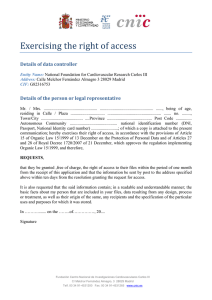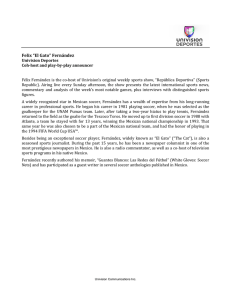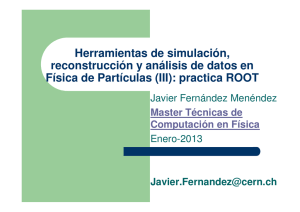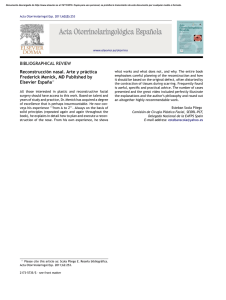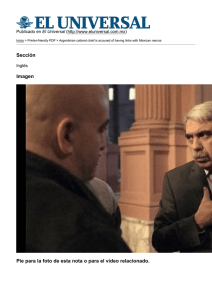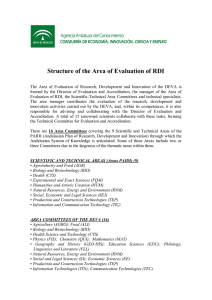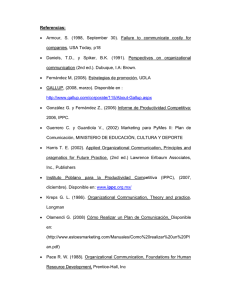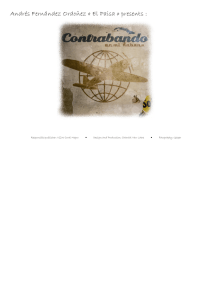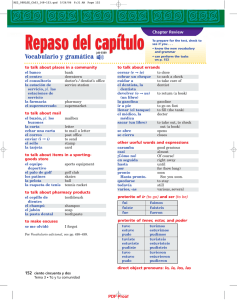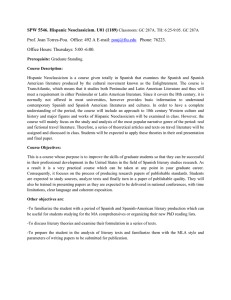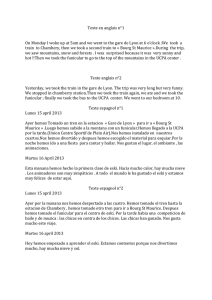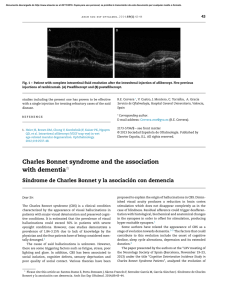Reply to the Letter ``Oropharynx and Hypopharynx
Anuncio
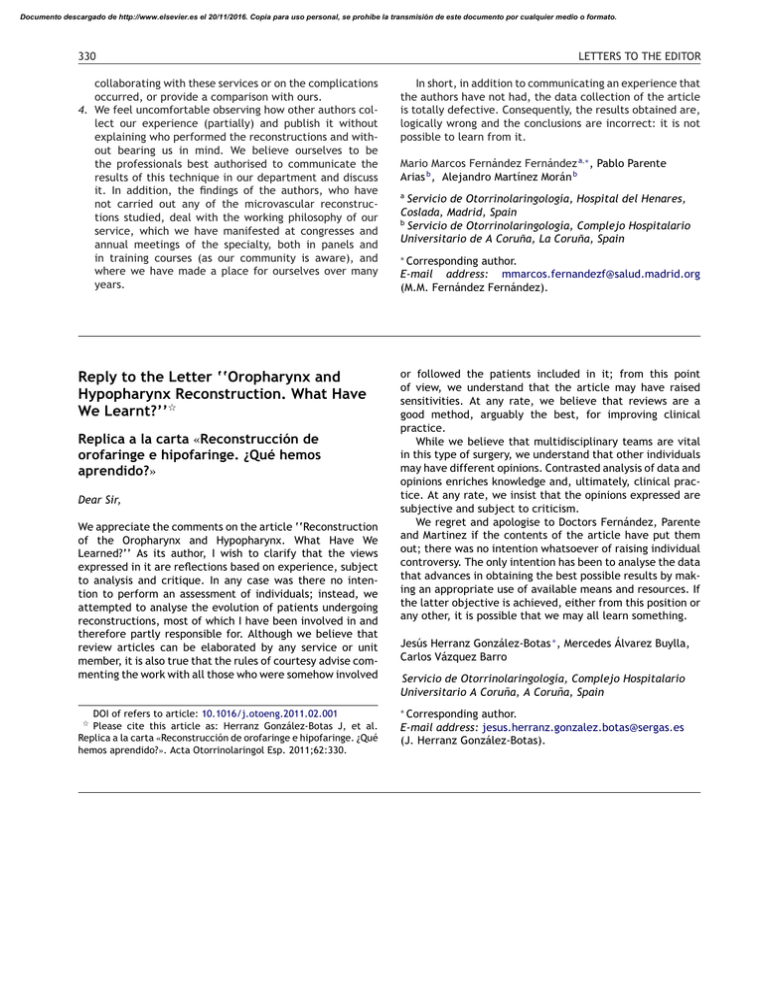
Documento descargado de http://www.elsevier.es el 20/11/2016. Copia para uso personal, se prohíbe la transmisión de este documento por cualquier medio o formato. 330 collaborating with these services or on the complications occurred, or provide a comparison with ours. 4. We feel uncomfortable observing how other authors collect our experience (partially) and publish it without explaining who performed the reconstructions and without bearing us in mind. We believe ourselves to be the professionals best authorised to communicate the results of this technique in our department and discuss it. In addition, the findings of the authors, who have not carried out any of the microvascular reconstructions studied, deal with the working philosophy of our service, which we have manifested at congresses and annual meetings of the specialty, both in panels and in training courses (as our community is aware), and where we have made a place for ourselves over many years. Reply to the Letter ‘‘Oropharynx and Hypopharynx Reconstruction. What Have We Learnt?’’夽 Replica a la carta «Reconstrucción de orofaringe e hipofaringe. ¿Qué hemos aprendido?» Dear Sir, We appreciate the comments on the article ‘‘Reconstruction of the Oropharynx and Hypopharynx. What Have We Learned?’’ As its author, I wish to clarify that the views expressed in it are reflections based on experience, subject to analysis and critique. In any case was there no intention to perform an assessment of individuals; instead, we attempted to analyse the evolution of patients undergoing reconstructions, most of which I have been involved in and therefore partly responsible for. Although we believe that review articles can be elaborated by any service or unit member, it is also true that the rules of courtesy advise commenting the work with all those who were somehow involved DOI of refers to article: 10.1016/j.otoeng.2011.02.001 Please cite this article as: Herranz González-Botas J, et al. Replica a la carta «Reconstrucción de orofaringe e hipofaringe. ¿Qué hemos aprendido?». Acta Otorrinolaringol Esp. 2011;62:330. 夽 LETTERS TO THE EDITOR In short, in addition to communicating an experience that the authors have not had, the data collection of the article is totally defective. Consequently, the results obtained are, logically wrong and the conclusions are incorrect: it is not possible to learn from it. Mario Marcos Fernández Fernández a,∗ , Pablo Parente Arias b , Alejandro Martínez Morán b a Servicio de Otorrinolaringología, Hospital del Henares, Coslada, Madrid, Spain b Servicio de Otorrinolaringología, Complejo Hospitalario Universitario de A Coruña, La Coruña, Spain Corresponding author. E-mail address: mmarcos.fernandezf@salud.madrid.org (M.M. Fernández Fernández). ∗ or followed the patients included in it; from this point of view, we understand that the article may have raised sensitivities. At any rate, we believe that reviews are a good method, arguably the best, for improving clinical practice. While we believe that multidisciplinary teams are vital in this type of surgery, we understand that other individuals may have different opinions. Contrasted analysis of data and opinions enriches knowledge and, ultimately, clinical practice. At any rate, we insist that the opinions expressed are subjective and subject to criticism. We regret and apologise to Doctors Fernández, Parente and Martinez if the contents of the article have put them out; there was no intention whatsoever of raising individual controversy. The only intention has been to analyse the data that advances in obtaining the best possible results by making an appropriate use of available means and resources. If the latter objective is achieved, either from this position or any other, it is possible that we may all learn something. Jesús Herranz González-Botas ∗ , Mercedes Álvarez Buylla, Carlos Vázquez Barro Servicio de Otorrinolaringología, Complejo Hospitalario Universitario A Coruña, A Coruña, Spain Corresponding author. E-mail address: jesus.herranz.gonzalez.botas@sergas.es (J. Herranz González-Botas). ∗
